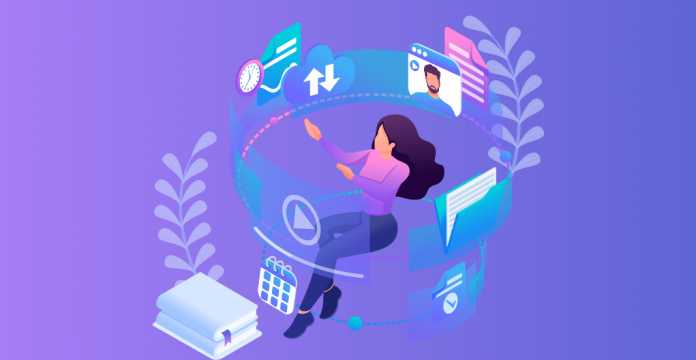
The use of technology to replace conventional workflows characterizes digital transformation. This transition to digital workflows has resulted in a new way of managing the work and a new value proposition for many companies. Digital transformation is making companies more agile and more competitive. Yet it does have its problems.
L&D and Digital Transformation
Thanks to the emergence of professional training approaches, L&D is profoundly influenced by digital transformation. Relying on interactive training tools makes learning content more available and unlocks new learner opportunities.
The implementation of an LMS and the use of digital assets for training purposes is just the start. For digital L&D initiatives to realize their full potential, a culture shift is required.
The following five approaches will give you perspectives to help change the organization’s culture as it adopts an ongoing digital transformation program:
1. Approach Learning as a Journey
In an ongoing process, you should approach training and growth with specific objectives and aims. You should design and organize your interactive training curriculum into small elements to make the material easier to absorb and to allow learners to engage with learning content at their convenience.
Another way to help learners track progress and set new targets is by providing assessments, quizzes, and other elements that assess knowledge retention. Try to develop a curriculum that will allow learners to achieve a new credential, or add gamification elements such as levels and badges to the curriculum.
2. Feedback on Interest, and the Agency
Encourage an active role for the learners. You can offer agency to the learners by letting them choose the content they want to learn and consume. You should also receive input from learners, teachers, and HR staff to continuously enhance the learning environment. In other words, the company should follow a collaborative approach to creating new digital assets, curating content, and appropriately structuring the learning plan.
3. Rethinking how Failure is Perceived
Your organizational culture cannot promote personal growth unless it rethinks its approach to failure. Failure will deter and ultimately cause learners to avoid engaging with the L&D program.
For example, by incorporating gamification elements such as badges or points, you can highlight successes and encourage learners to take ownership of their learning by allowing them to choose the learning material they want to interact with and enabling them to retake tests and quizzes so they can boost their scores.
4. Be Flexible
Think about reaching out to an LMS consulting company to pick your business’s best LMS solution and create a training plan that makes sense for your goals. Adopting a digital L&D strategy ensures you can create training programs that are customized to your employees’ needs and your organization’s goals.
Flexibility in the digital age is a core component of a productive business community. If you do not get the results you wanted, you need to be able to implement new technologies, such as digital transformation platforms, and rethink your approach to the process.
5. Be Social
By building a group where learners can exchange information and become mentors, you can incorporate social elements into your interactive training platform. You can also combine a digital framework with interactive learning experiences, such as educational games. These interactive learning opportunities are useful for motivation enhancement as well as team building.
Benefits Of Training And Development In An Organisation
A training program enables you to reinforce those skills every employee needs to improve. A learning plan takes all workers to a higher level, and they can have similar expertise and skills. This helps to reduce any weak connections within the company that rely heavily on others to accomplish critical day-to-day work. Individuals and enterprise teams can get trained in industry-recognized certification courses to learn new methodologies and frameworks that can be incorporated into an organization and fully realize their potential through digital transformation.
Training and development benefits and values act as a domino effect; leaders feel competent and can effectively influence employee performance; happy and skilled employees create job satisfaction, commitment, and therefore retention; workforce improvement and engagement impact the overall profit. ADDIE is an acronym for the five stages of a development process: Analysis, Design, Development, Implementation, and Evaluation.
Digital Transformation is More than Just a Single Event.
Transforming the culture of your company is not something that is going to happen overnight. Your L&D team will be responsible for this process, defining the core values that your company will follow and creating strategies to promote those values.
In an enterprise, digital transformation is more than just a single event. It’s about goods and services, consumer touchpoints, and decisions guided by the results. You need help from employee engagement for a digital strategy because, above all, it is about better organizational learning.
It’ll take more than just the L&D squad to make the change. Training and growth play a significant role in any digital transformation progress.
Some of the popular certification courses that aid in the digital transformation of an enterprise are:














